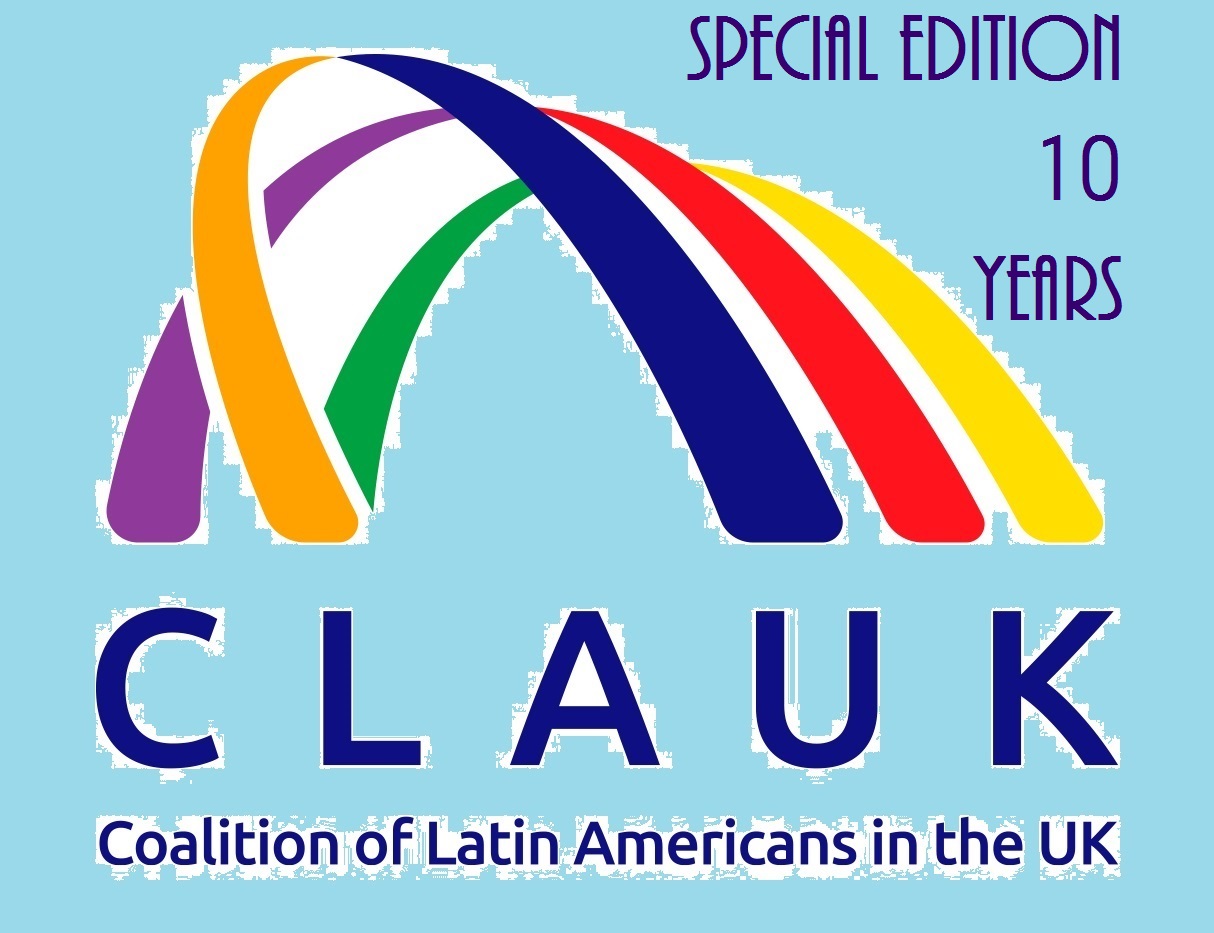 For 35 years Latin American Women’s Aid (LAWA) has been working to eradicate violence against Latin American immigrant women and to achieve self-determination. It has other action fronts and annually provides support to more than 1500 women.
For 35 years Latin American Women’s Aid (LAWA) has been working to eradicate violence against Latin American immigrant women and to achieve self-determination. It has other action fronts and annually provides support to more than 1500 women.
 LAWA was founded in 1987 by a group of women political refugees from Chile and Colombia. The organisation emerged in response to the lack of services for migrant women and the discrimination experienced by Latin American women in different areas of British society.
LAWA was founded in 1987 by a group of women political refugees from Chile and Colombia. The organisation emerged in response to the lack of services for migrant women and the discrimination experienced by Latin American women in different areas of British society.
Its initial aim was to provide safe and temporary accommodation for Latin American women and their children fleeing domestic violence by running a shelter.
Thirty-five years later, it has kept this shelter and opened 3 more, making 4 in total today – the only ones in Europe by and for Latin American women. In addition to providing accommodation, shelter residents are offered psychotherapeutic accompaniment and other practical support, such as registration at the general practitioner’s (GP) office, application for government benefits, enrolment of children in school and re-housing, among others.
Over the decades, it has expanded and diversified its services, with the central objective of working tirelessly with women and children to eradicate violence against them and achieve self-determination.
 Since 1996, it has had a counselling centre, which provides specialised support to women survivors of domestic violence and other minority groups of women in the areas of immigration, employment, housing, education, access to social services, etc[1]. It also offers specialised services for lesbian, trans, bisexual and queer women. It also offers specialised services for lesbian, trans, bisexual and queer women.
Since 1996, it has had a counselling centre, which provides specialised support to women survivors of domestic violence and other minority groups of women in the areas of immigration, employment, housing, education, access to social services, etc[1]. It also offers specialised services for lesbian, trans, bisexual and queer women. It also offers specialised services for lesbian, trans, bisexual and queer women.
In addition, for the past seven years, it has opened counselling services, crèche, English classes, yoga classes, community participation programmes and a research, advice and advocacy initiative on housing policy, called Women Against Homelessness and Abuse (WAHA).
The organisation also has a voluntary service scheme and an internship programme, which aim to create opportunities for women who are disadvantaged in the English labour market, as well as to integrate women interested in acquiring skills and knowledge and to support their work.
LAWA has a great team of 29 staff and 10 volunteers who enable it to provide all these services in Portuguese, Spanish and English.
 Over the last 20 years the organisation has been systematically affected by budget cuts from local and national authorities, which has been particularly detrimental to the provision of shelter services and to migrant and minority women.
Over the last 20 years the organisation has been systematically affected by budget cuts from local and national authorities, which has been particularly detrimental to the provision of shelter services and to migrant and minority women.
Within this context, the biggest challenge they have experienced occurred in 2015, when Islington Council withdrew the financial support it had always provided to the shelter they managed. This was despite having the highest audit rating and having run the service successfully for 25 years. In response to the crisis, the organisation launched the #SaveOurRefuge campaign, which raised the funds needed to maintain the shelter and the service. It also launched a new organisational strategy that has enabled it to open 3 more shelters, as well as significantly expand its service offering.
On average, LAWA supports more than 1,500 women each year and aims to continue to do so with quality and commitment, and to continue working collectively to end violence and oppression against women and children.
 The dissemination of their work in different community, diplomatic and virtual spaces, as well as ‘voice to voice’, has allowed women from different countries in Latin America and the world to access their services and find the necessary support.
The dissemination of their work in different community, diplomatic and virtual spaces, as well as ‘voice to voice’, has allowed women from different countries in Latin America and the world to access their services and find the necessary support.
For further information: Tel: 020 727 50321 and Latin American Women’s Aid (LAWA)
(Translated by Cristina Popa – Email: gcpopa83@gmail.com) – Photos: Pixabay
Special Edition – CLAUK 10 Years
- 10 years of CLAUK: feeling, living and supporting Latino migrants
- Pioneers in defence of London’s Latin Quarter
- A house open to immigrants
- For a world free of violence against women and children
- Pioneering journalism by and for migrants
- A shared history of enduring solidarity
- Supporting Latin Americans in the North West
- Caring for the emotional health of the diaspora












.jpg)












